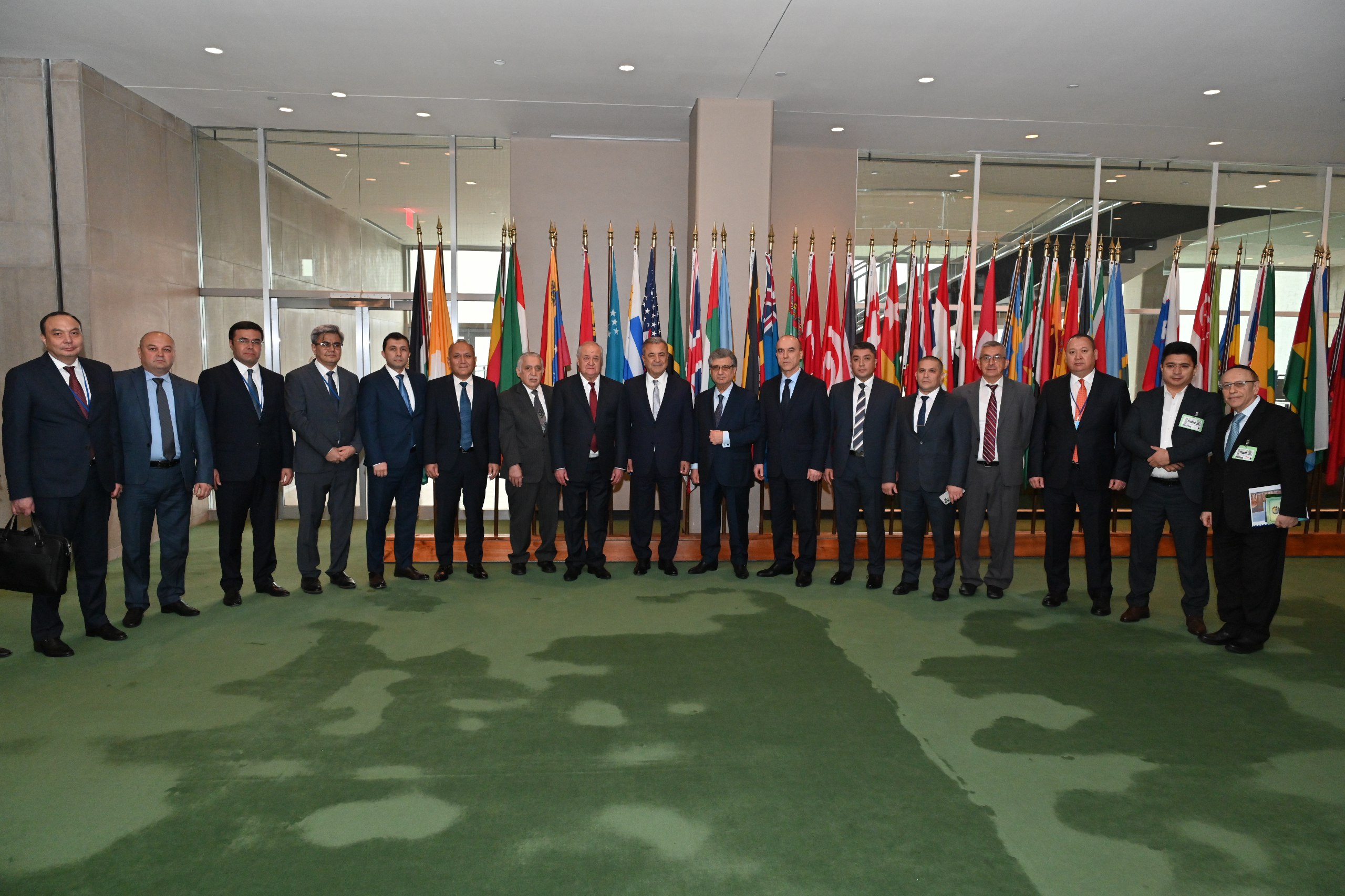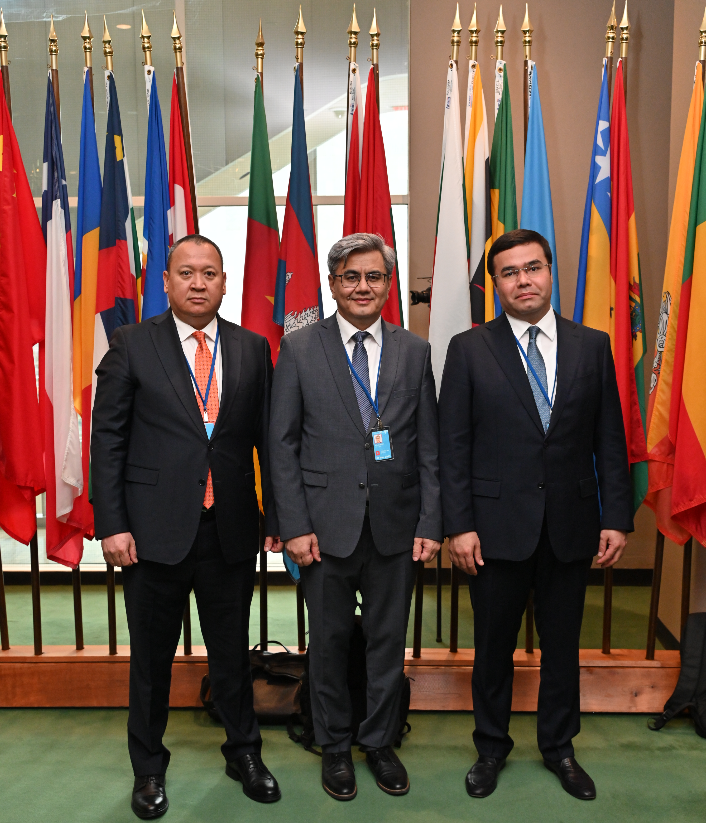
The delegation from the Republic of Uzbekistan participated in a briefing on "Achieving Sustainable Development Goals and Strengthening Regional Security and Stability: Uzbekistan's Perspective." The event took place on December 4th at the United Nations headquarters in New York.
The aim of the briefing was to accelerate the implementation of the Sustainable Development Agenda for the period up to 2030, given the uneven and insufficient progress towards achieving sustainable development goals (SDGs), as well as to strengthen regional security and stability.
During the briefing, Deputy Minister of Ecology J. Kazbekov delivered a presentation on "Uzbekistan's Efforts to Consolidate Regional Countries in Addressing Climate Challenges," addressing serious climate issues in the region and urgent measures taken by Uzbekistan to achieve the SDGs.
In his speech, the Deputy Minister drew attention to the climate problems in Central Asia. In particular, he noted that the region is the most vulnerable to climate change. Over the past few years, the increase in air temperature in Central Asia has been twice the global average, resulting in a reduction of glacier areas by about one-third, leading to a 15-20% decrease by 2050 in the water supply of the main rivers, the Amu Darya and the Syr Darya. J. Kazbekov also listed problems related to transboundary water management, soil degradation, declining crop yields, biodiversity loss, and emphasized the issue of the drying up of the Aral Sea and its increasing impact on desertification processes, the increase of salt and dust storms. It was also noted that the region is experiencing an increase in the frequency and duration of days with temperatures above 40°C, warm winters with minimal freezing days, sharp temperature fluctuations, intense spring rains, and drought periods.
In his speech, the Deputy Minister emphasized the importance of cooperation between the countries of the Central Asian region in developing joint scientifically-based measures to adapt to climate change and finding comprehensive regional approaches and solutions to environmental problems.
It is worth noting that Uzbekistan is committed to achieving the SDGs. In his speech at the 78th session of the UN General Assembly, President of the Republic of Uzbekistan Shavkat Mirziyoyev proposed to establish the "Central Asian Climate Dialogue" and adopt a UN General Assembly resolution titled "Central Asia in the Face of Global Climate Threats: Solidarity for the Sake of Common Prosperity."
J. Kazbekov drew the participants' attention to the initiatives put forward by Uzbekistan, in particular, the national program "Yashil Makon," which aims to plant 1 billion trees within 5 years. It also mentioned the active work being done to cover the dried-up bottom of the Aral Sea with green plantations on an area of about 2 million hectares. The UN General Assembly recognized the Aral Sea catastrophe as a global environmental problem of modern times, and to mitigate its consequences, the UN-established Multi-Partner Trust Fund for Human Security in the Aral Sea Region was created, and a special resolution was adopted at the 75th session of the UN General Assembly, according to which the Aral Sea region was declared a zone of environmental innovations and technologies.
During his speech, J. Kazbekov invited the participants of the briefing to the Climate Forum, which will take place in the spring of 2024 in the historic city of Samarkand, Uzbekistan. The forum, held every two years, will serve as a platform for a global dialogue on socio-political and economic issues. The five sessions will discuss water, energy, food, environmental security, sustainable urban planning, green investments, youth participation, and the role of traditional knowledge in sustainable development. The forum envisages the signing of the Samarkand Declaration to establish a unified regional vision for climate change.
It was emphasized that Uzbekistan has set itself the strategic goal of adapting key sectors of the economy to a changing climate. The country is committed to achieving carbon neutrality and increasing the share of "green" energy. These steps are being taken to ensure sustainable development and actively support global and regional stability in the face of modern climate challenges.
The discussion at the briefing provided an opportunity to consider ways to enhance joint efforts in addressing pressing issues related to global and regional stability. These issues include combating climate change, combating environmental degradation, and promoting sustainable development.












